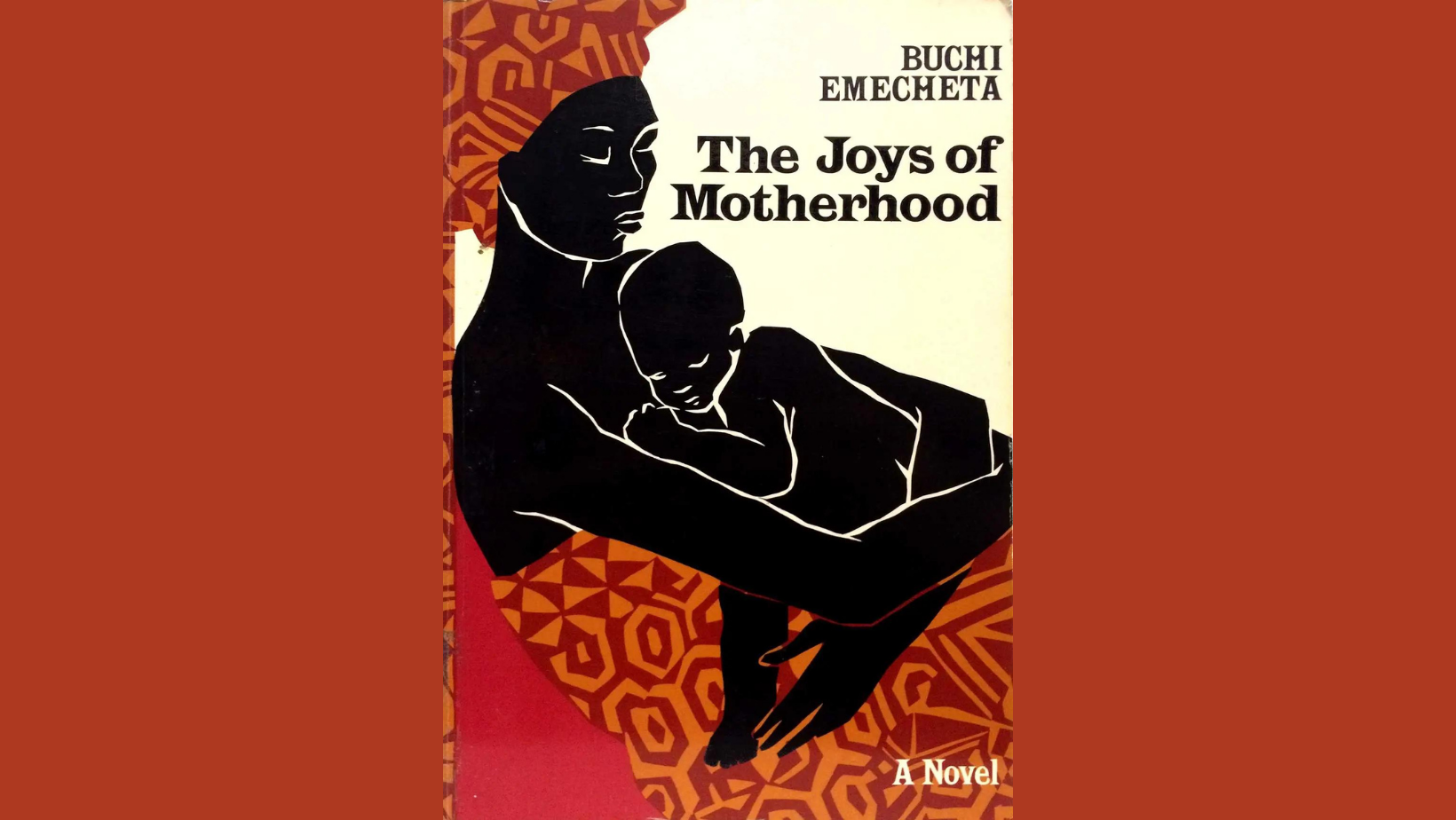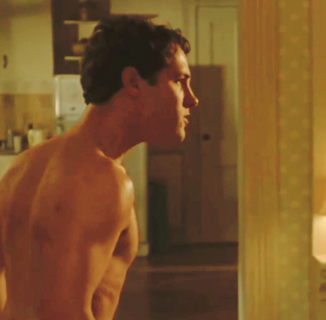There is a line I always think of. It is from Buchi Emecheta’s critically-acclaimed 1979 novel, The Joys of Motherhood. The line surfaces as the book winds down to Nnu Ego’s unglamorous death; alone, ridden with a debilitating mental illness, and by the roadside…with no child to hold her hand and no friend to talk to her.
Poor Nnu Ego, even in death she had no peace!
The exasperation of the narrator rings clear in this line. Nnu Ego had sacrificed everything in order to raise her seven children and her husband, Nnaife. Her reward? She was branded a Wicked Woman because she never bothered to hearken to the supplications made at the grotto by her children, who were erstwhile when she needed them the most. Branding Nnu Ego a Wicked Woman hinged on two factors. First, people expected Nnu Ego’s ghost to empathize with the barren women who came to her shrine because she was once in their shoes during her first marriage with Amatokwu. The second reason is the entitlement we have to Black women’s labor, regardless if they are dead or alive.
The Joys of Motherhood altered my perception of what literature should and should not be. At nine, my reading was unintentionally “optimistic”. Most of the books I read dwelt heavily on karma, nemesis, and the abundant reward of being good. The Joys of Motherhood was supposed to continue this “grand” tradition. Judging by the title, it had the trappings of a quintessential motherhood tale. You know, like the ones our vicar shares on Mothering Sundays—a woman becomes a mother, then God, her husband, or whoever is available puts her through a series of trials and tribulations that will put her forbearance to test, and in the end, she will come out triumphant and someone, most likely her children, will wipe her tears. At the end of the novel, I imagined I would take away a moral lesson about love and sacrifice and how they bring “joy”.
The Joys of Motherhood altered my perception of what literature should and should not be.
Nnu Ego’s journey begins in 1934 Lagos, wandering the city’s cold and soulless streets in the faint predawn light. She had woken up to the lifeless body of her firstborn and shortly after, headed to Cater Bridge where she planned to end her life. It is in this chaos that Buchi Emecheta sends the reader into a flashback taking place 25 years ago in a “little Ibo town” called Ibuza. It is here we begin to make sense of things: In Ibuza, we are introduced to the love story between Ona and Nwokeocha Agbadi, the union that brought Nnu Ego into this world and took away her mother. We bear witness to Nnu Ego’s personal go—her chi’s—ruthlessness. This chi used to be an enslaved girl who was buried along with Agunwa, Nwokeocha Agbadi’s senior wife, against her will. Her wrath on Nnu Ego came about righteously.
Throughout Nnu Ego’s travails—her childless marriage to “her long wiry Amatokwu,” divorce, relocation to Lagos to marry Nnaife (a man she repeatedly described as ugly) the death of her first child—we meet Dr. & Mrs Meers, Nnaife’s employees, whose move back to England costs Nnaife his job. Nnaife leaves Nnu to take care of their new child after he gets a job on a ship going to Fernando Po. Nnu must go through another childbirth alone. Nnaife gets conscripted into the British Army and sent off to India and Burma to fight in the Second World War, and Nnu’s chi punishes her with multiple births and an overwhelming number of kids she could not possibly take care of. Throughout the story, Nnu gives so much of herself away to feed, house, and send her children to school—all with the promise that she would “reap the fruit of her labor” remaining unwavering. If there is anyone who deserved to have the last laugh, it was Nnu Ego. But the novel ends with Nnu Ego’s kindness and selflessness thrown back in her face.
Behind the “fond” stories shared in churches and on social media during Mothering Sundays are plethoras of Nnu Egos.
Buchi Emecheta’s fictional account of motherhood is not atypical, especially for motherhood in Nigeria. Behind the “fond” stories shared in churches and on social media during Mothering Sundays are plethoras of Nnu Egos. When we strip away the praises and self-serving adulation from these stories, we begin to see them for what they are; tales about women losing agency and autonomy and enduring unimaginable forms of violence and abuse.
In a broader context, Nnu Ego is personified in the lives of Nigerian women like Funmilayo Ransome-Kuti, who after decades of fighting for the country’s independence, women’s equality, and educational rights, died from the injuries she sustained after being thrown out the window of her son’s two-story building by a group of soldiers during a raid instructed by the then-military government. And her grotto? Memorialized as the home of the first woman to drive a car in Nigeria.
For fifteen years, Nnu Ego’s ghost has continued to haunt me. With every re-read, I hope for a new ending. An ending where Nnu Ego actually experienced the joys of motherhood. In 2017, I started writing a story; a retelling of Buchi Emecheta’s novel which reimagined a present where women can opt out of motherhood. My character, Mama Nwakaego, stood tall throughout the motherhood renouncement ritual. And in the end, she was free. But that freedom came with a caveat; When a woman renounces motherhood, she leaves what used to be her home with nothing. No money. No children. No anything. And God help her if she does this in old age, when she can longer fend for herself.
For fifteen years, Nnu Ego’s ghost has continued to haunt me.
Now that I think about it, Nnu Ego does not need a retelling to assert her freedom because she is free, and always has been. Death is freedom. For centuries, people have sought freedom in death. “Bury me in the ocean, with my ancestors that jumped from the ships, because they knew death was better than bondage”, one of the most quoted lines from the 2018 box-office smash hit Black Panther, alludes to the Igbo Landing where approximately seventy-five Igbos chose a mass suicide over a live of indentured servitude in America. In Beloved, Toni Morrison borrows from the real life story of Margaret Garner, an African American woman who killed her two-year-old daughter and attempted to kill her other children before she was intercepted by slave hunters. Margaret Garner, who herself was a runaway slave, wanted to give her children a way out and spare them from the horrors they would face if recaptured.
But what happens when death fails to shield us from exploitation? What happens when we do not have an afterlife autonomy like Nnu Ego to turn our backs on the people who flood our grottos with endless requests?
I started writing a story; a retelling of Buchi Emecheta’s novel which reimagined a present where women can opt out of motherhood.
Saartjie (Sara) Baartman was an enslaved South African woman who was brought to Europe seemingly on false pretenses by a British doctor. Stage-named the “Hottentot Venus”, she was paraded around “freak shows” in London and Paris, with crowds invited to look at her large buttocks. After her death in 1815, Sara’s body parts were still displayed at the Musée de l’Homme (Paris) until 1974. In 1994, Nelson Mandela formally requested Sara’s body be brought home. After years of legal wrangling, France finally approved the request on March 6th, 2002. Ms. Baartman has since been laid to rest in Vergaderingskop at Hankey, Gamtoos Valley, South Africa, after more than a century of being a public spectacle for the white gaze to further racist suppositions and justify the dehumanization of Black bodies.
As technology flourishes, we no longer need to preserve the dead in fancy museums or dig them up to exploit them.
On August 19th, 2021, to mark twenty years of American popstar Aaliyah’s demise, her label Blackground Records released her sophomore album One In A Million on streaming platforms, with promises of subsequent releases in the future. This release was in the midst of the heated debacle between Aaliyah’s Estate and Barry Hankerson; the singer’s uncle and manager (also co-founder of Blackground Records). We used to have a Blu-Ray version of Romeo Must Die at home. On our first watch, my brother—the custodian of information during childhood since he was the only one old enough to access the Internet at cyber-cafés—furnished my sisters and I with Aaliyah’s life story, including her “marriage” to R.Kelly and mysterious plane crash death. All of this will be forgotten in the haze of Jet-Li’s superb martial arts moves and Aaliyah’s it-girl demeanor. By the end of the movie, we were all break-dancing to “Try Again” as the credits scrolled past. As I grew older, the weight of what happened to Aaliyah dawned on me following the investigative reports by Ronan Farrow and Surviving R. Kelly documentary, the American media’s obsession with sexualizing her as a child, and understanding our collective complicity, actions, and inactions.
I am wary of these new releases.
A counter-argument to my stance will be that these new releases will further cement Aaliyah’s legacy as a gone-too-soon icon. But who profits off this release? An uncle who could not protect her niece from a sex predator and a mother who chose silence. How does an album which was produced and features hip-hop gatekeepers who have continued to enable the toxic hip-hop culture (the same culture that exploited Aaliyah) be the way we choose to honor Aaliyah’s legacy? Just like Nnu Ego’s children who abandoned her at her most vulnerable but crawled back to her grotto after her death to seek favors, these opportunists have descended on Aaliyah’s artistic legacy. However, unlike Nnu Ego, Aaliyah cannot object to this posthumous exploitation.
It is not just Aaliyah.
On February 11th, 2012, Whitney Houston was found submerged in a bathtub at a Beverly Hilton Hotel room. After a career that spanned three and a half decades, a record-breaking two hundred million worldwide album sales, and establishing her status as a living legend, Whitney Houston died alone. Before her body ran cold, news outlets swooped in and milked the probable drug overdose as cause of death for clicks and paper sales.
Sometimes we are wrapped up in the theatrics mining for likes, shares, and retweets that we forget the profound pain of a woman ripped open and accosted before millions.
Whitney Houston granted a rare interview with ABC’s Diane Sawyer on December 4th, 2002. A popular clip of this interview shows Diane confronting Whitney with a picture of herself and demanding that Whitney explain “the bones”. She went ahead to list her presumptions on the weight loss —anorexia, bulimia, and, of course, Whitney’s rumored drug addiction, even after Whitney repeatedly asked her Do you really know? Throughout the interview, Diane Sawyer feigned concern for Whitney while in truth she was just on a mission to ruin Whitney’s public image in every way possible and continue the media’s grand tradition of building up people just to tear them down. This interview clip has been reenacted countless times all over social media with people lip-syncing to Whitney’s voice and mimicking her facial gesture. Sometimes we are wrapped up in the theatrics mining for likes, shares, and retweets that we forget the profound pain of a woman ripped open and accosted before millions around the world.
Pulitzer-finalist Soraya Nadia McDonald, in her riveting essay for The Undefeated, expounded on the duality of Whitney Houston’s existence (Whitney and Nippy), how each of these versions contradicted and overlapped, and how Whitney Houston had to navigate these complexities in a white supremacist world strung on viewing her and pegging the conditions of “accepting” her through a lens of palatable Blackness. Worse was that the Black community—Whitney’s community—where she should have felt safe and at home, was equally miserly with the grace they extended to her. She was booed at the 1988 Soul Train Award for being “too pop” or “too white” and not aligned within the canon of “black” music.
Throughout her struggle with substance addiction and partner domestic abuse, the world still demanded Whitney’s labor and expected her to show up, spangled and happy, to deliver premium vocals. And when she finally cracked, the world bailed on her and walked out of her concerts. People like Wendy Williams mined this “crack” to advance their careers. Whitney Houston became the butt of jokes for shows like “Family Guy,” “American Dad,” and “The Boondocks,” and a punchline for comedians like Chris Rock and Jessie Woo, even after her death. And just like Nnu Ego, a world that abandoned her celebrated her too loudly with a grotto in the form of a posthumous album sales surge.
You would think the world would have learned by now to extend grace to Black women, especially those in the public eye. We have seen the way powerful individuals and institutions have continued to hound Serena Williams, Meghan Markle, Naomi Osaka, and Simone Biles, for deviating from our well-formed opinions of #BlackGirlMagic and showing the faintest display of human emotion and daring to exercise autonomy. Because Black women cannot exist beyond their roles as unpaid saviors or casualties who must die to provide a plot twist.♦
Help make sure LGBTQ+ stories are being told...
We can't rely on mainstream media to tell our stories. That's why we don't lock our articles behind a paywall. Will you support our mission with a contribution today?
Cancel anytime · Proudly LGBTQ+ owned and operated
Read More in Entertainment
The Latest on INTO
Subscribe to get a twice-weekly dose of queer news, updates, and insights from the INTO team.
in Your Inbox















